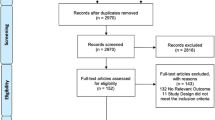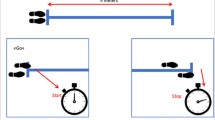Abstract
The population of industrialized nations is progressively aging, with Italy having one of the most elderly populations in the world. Natural aging may be associated with physical and cognitive impairments, often straining public resources. The present study aims to investigate the influence of gender on wellness of the nonagenarians. We evaluated quality of life among nonagenarians living in the Mugello area, an Italian location with a large population of individuals > 90 years, using the Health Survey Scoring SF-12. The 15-item Geriatric Depression Scale and Basic and Instrumental Activity of Daily Living scales were also assessed. The Mini-Mental State Examination was used to evaluate the cognitive status. In the current survey, women outnumbered men 2.7:1 confirming their higher longevity. However, on the basis of SF-12 scores, nonagenarian women felt worse than men, both physically (mean: women = 41.8 vs men = 44.4, p = 0.004) and mentally (mean: women = 46.7 vs men =48.5, p = 0.034), and their depression rates were higher: considering a General Depression Scale score ≥ 5 as a possible depression status; 37.5% of men reported depression vs. 48.5% of women (p = 0.021). Significant differences were observed also in daily activities, both basic (median: woman = 3 vs men = 5, p < 0.001) and instrumental (median woman = 1 vs me = 3, p < 0.001). Despite prior reports showing that women perform better than men in aging, our study confirms data reported in most national and European surveys: women live longer than men, but with poorer quality of life. The current study confirms the phenomenon known as the “male-female health-survival paradox.”


Similar content being viewed by others
Abbreviations
- BADL:
-
Basic Activity of Daily Living Scale
- CI:
-
confidence interval
- DF:
-
degree of freedom
- GDS:
-
Geriatric Depression Scale
- IADL:
-
Instrumental Activities of Daily Living Scale
- IQR:
-
interquartile range
- IRR:
-
incidence rate ratio
- MCS-12:
-
Health Survey Scoring Short-Form 12 Mental Health Component Summary score
- MMSE:
-
Mini Mental State Examination
- OR:
-
odds ratio
- QoL:
-
quality of life
- PCS-12:
-
Health Survey Scoring Short-Form 12 Physical Health Component Summary score
- SD:
-
standard deviation
- SF-12:
-
Health Survey Scoring Short-Form 12
References
World Health Organization. Global health and ageing. Geneva: U.S. National Institute of Aging. http://www.who.int/ageing/publications/global_health.pdf. 2011; Accessed 20 Jun 2017
Bambra C, Pope D, Swami V, Stanistreet D, Roskam A, Kunst A, Scott-Samuel A (2009) Gender, health inequalities and welfare state regimes: a cross-national study of thirteen European countries. J Epidemiol Community Health 3(1):38–44. https://doi.org/10.1136/jech.2007.070292
Magnolfi SU, Petruzzi E, Pinzani P, Malentacchi F, Pazzagli M, Antonini FM (2007) Longevity index (LI%) and centenarity index (CI%): new indicators to evaluate the characteristics of aging process in the Italian population. Arch Gerontol Geriatr 44(3):271–276. https://doi.org/10.1016/j.archger.2006.05.006
Fastame MC, Penna MP (2014) Psychological well-being and metacognition in the fourth age: an explorative study in an Italian oldest old sample. Aging Ment Health 18(5):648–652. https://doi.org/10.1080/13607863.2013.866635
Von Faber M, Bootsma-van der Wiel A, Van Exel E, Gussekloo J, Lagaay AM, van Dongen E, Knook DL, van der Geest S, Westendorp RG (2001) Successful aging in the oldest old: who can be characterized as successfully aged? Arch Intern Med 161(22):2694–2700. https://doi.org/10.1001/archinte.161.22.2694
Cochrane A, Furlong M, McGilloway S, Molloy DW, Stevenson M, Donnelly M (2016) Time-limited home-care reablement services for maintaining and improving the functional independence of older adults. Cochrane Database Syst Rev 10:CD010825
Franck L, Molyneux N, Parkinson L (2016) Systematic review of interventions addressing social isolation and depression in aged care clients. Qual Life Res 25(6):1395–1407. https://doi.org/10.1007/s11136-015-1197-y
Warmoth K, Tarrant M, Abraham C, Lang IA (2016) Older adults’ perceptions of ageing and their health and functioning: a systematic review of observational studies. Psychol Health Med 21(5):531–550. https://doi.org/10.1080/13548506.2015.1096946
Read S, Grundy E, Foverskov E (2016) Socio-economic position and subjective health and well-being among older people in Europe: a systematic narrative review. Aging Ment Health 20(5):529–542. https://doi.org/10.1080/13607863.2015.1023766
World Health Organization. Gender as a social determinant of health: gender analysis of the health sector in Cambodia. http://www.who.int/sdhconference/resources/draft_background_paper15_cambodia.pdf. 2011; Accessed 20 Jun 2017
Molino-Lova R, Sofi F, Pasquini G, Gori A, Vannetti F, Abbate R, Gensini GF, Macchi C; Mugello Study Working Group. The Mugello study, a survey of nonagenarians living in Tuscany: design, methods and participants’ general characteristics. Eur J Intern Med 2013;24(8):745–749. doi: https://doi.org/10.1016/j.ejim.2013.09.008, The Mugello Study, a survey of nonagenarians living in Tuscany: Design, methods and participants' general characteristics
Martinez-Martin P (2017) What is quality of life and how do we measure it? Relevance to Parkinson’s disease and movement disorders. Mov Disord 32(3):382–392. https://doi.org/10.1002/mds.26885
Oksuzyan A, Juel K, Vaupel JW, Christensen K (2008) Men: good health and high mortality. Sex differences in health and aging. Aging Clin Exp Res 20(2):91–102. https://doi.org/10.1007/BF03324754
Ware J, Kosinski M, Keller SD (1996) A 12-item short-form health survey: construction of scales and preliminary tests of reliability and validity. Med Care 34(3):220–233. https://doi.org/10.1097/00005650-199603000-00003
Ware JE Jr, Sherbourne CD (1992) The MOS 36-item short-form health survey (SF-36). I. Conceptual framework and item selection. Med Care 30(6):473–483. https://doi.org/10.1097/00005650-199206000-00002
Novella JL, Jochum C, Ankri J, Morrone I, Jolly D, Blanchard F (2001) Measuring general health status in dementia: practical and methodological issues in using the SF-36. Aging (Milano) 13(5):362–369
Yesavage JA, Brink TL, Rose TL, Lum O, Huang V, Adey M, Leirer VO (1983) Development and validation of a geriatric depression screening scale: a preliminary report. J Psychiatr Res 17:37–49
Landi F, Tua E, Onder G, Carrara B, Sgadari A, Rinaldi C, Gambassi G, Lattanzio F, Bernabei R, SILVERNET-HC Study Group of Bergamo (2000) Minimum data set for home care: a valid instrument to assess frail older people living in the community. Med Care 38(12):1184–1190. https://doi.org/10.1097/00005650-200012000-00005
Katz S, Ford AB, Moskowitz RW, Jackson BA, Jaffe MW (1963) Studies of illness in the aged. The index of ADL: a standardized measure of biological and psychosocial function. JAMA 185(12):914–919. https://doi.org/10.1001/jama.1963.03060120024016
Folstein MF, Folstein SE, Mchugh PR (1975) “Mini-mental state”. A practical method for grading the cognitive state of patients for the clinician. J Psychiatr Res 12(3):189–198. https://doi.org/10.1016/0022-3956(75)90026-6
Andersen K, Nybo H, Gaist D, Petersen HC, McGue M, Jeune B, Vaupel JW, Christensen K (2002) Cognitive impairment and mortality among nonagenarians: the Danish 1905 Cohort Survey. Dement Geriatr Cogn Disord 13(3):156–163. https://doi.org/10.1159/000048647
Apolone G., Mosconi P., Quattrociocchi L., Gianicolo E.A.L., Groth N., Ware J.E. Jr. (2005) Questionario sullo stato di salute SF-12 Versione italiana. Milano, Istituto di Ricerche Farmacologiche Mario Negri. http://crc.marionegri.it/qdv/downloads/SF12%20Manuale.pdf. Accessed Dec 13 2016
ISTAT. (2013). Condizioni di salute e ricorso ai servizi sanitari. http://www.istat.it/it/archivio/5471. Accessed 10 Jun 2017
Barford A, Dorling D, Smith GD, Shaw M (2006) Life expectancy: women now on top everywhere. BMJ 332(7545):808. https://doi.org/10.1136/bmj.332.7545.808
Oksuzyan A, Maier H, McGue M, Vaupel JW, Christensen K (2010) Sex differences in the level and rate of change of physical function and grip strength in the Danish 1905-Cohort Study. J Aging Health 22(5):589–610. https://doi.org/10.1177/0898264310366752
Formiga F, Pujol R, Perez-Castejon JM, Ferrer A, Henriquez E (2005) Low comorbidity and male sex in nonagenarian community-dwelling people are associated with better functional and cognitive abilities: the Nona Santfeliu study. J Am Geriatr Soc 53(10):1836–1837. https://doi.org/10.1111/j.1532-5415.2005.53528_4.x
Stephens C, Spicer J, Budge C, Stevenson B, Alpass F (2015) Accounting for differences in cognitive health between older adults in New Zealand and the USA. Int Psycogeriatr 27(04):591–600. https://doi.org/10.1017/S1041610214002579
Li CL, Hsu HC (2015) Cognitive function and associated factors among older people in Taiwan: age and sex differences. Arch Gerontol Geriatr 60(1):196–200. https://doi.org/10.1016/j.archger.2014.10.007
Crimmins EM, Kim JK, Langa KM, Weir DR (2011) Assessment of cognition using surveys and neuropsychological assessment: the health and retirement study and the aging, demographics, and memory study. J Gerontol B, Psychol Sci Soc Sci 66(Suppl 1):i162–i171
Arber S, Cooper H (1999) Gender differences in health in later life: the new paradox? Soc Sci Med 48(1):61–76. https://doi.org/10.1016/S0277-9536(98)00289-5
Van der Weele GM, Gussekloo J, De Waal MW, De Craen AJ, Van der Mast RC (2009) Co-occurrence of depression and anxiety in elderly subjects aged 90 years and its relationship with functional status, quality of life and mortality. Int J Geriatr Psychiatry 24(6):595–601. https://doi.org/10.1002/gps.2162
Coraci D, Santilli V, Padua L (2016) Comment on “Cut-off points to identify sarcopenia according to European Working Group on Sarcopenia in Older People (EWGSOP) definition”. Clin Nutr 35(6):1568–1569. https://doi.org/10.1016/j.clnu.2016.06.026
Acknowledgements
We would like to thank Dr. Lisa Hobson-Webb for language revision, Dr. Chiara Briani, Dr. Alice Laudisio, and Dr. Silvia Giovannini for their technical support.
Author information
Authors and Affiliations
Consortia
Corresponding author
Ethics declarations
Conflict of interest
The authors declare that they have no conflict of interest.
Informed consent
Informed consent was obtained from all individual participants included in the study.
Rights and permissions
About this article
Cite this article
Padua, L., Pasqualetti, P., Coraci, D. et al. Gender effect on well-being of the oldest old: a survey of nonagenarians living in Tuscany: the Mugello study. Neurol Sci 39, 509–517 (2018). https://doi.org/10.1007/s10072-017-3223-z
Received:
Accepted:
Published:
Issue Date:
DOI: https://doi.org/10.1007/s10072-017-3223-z




